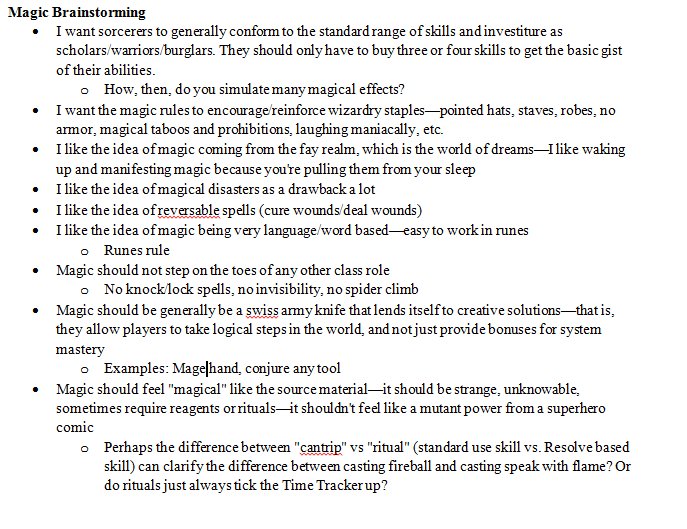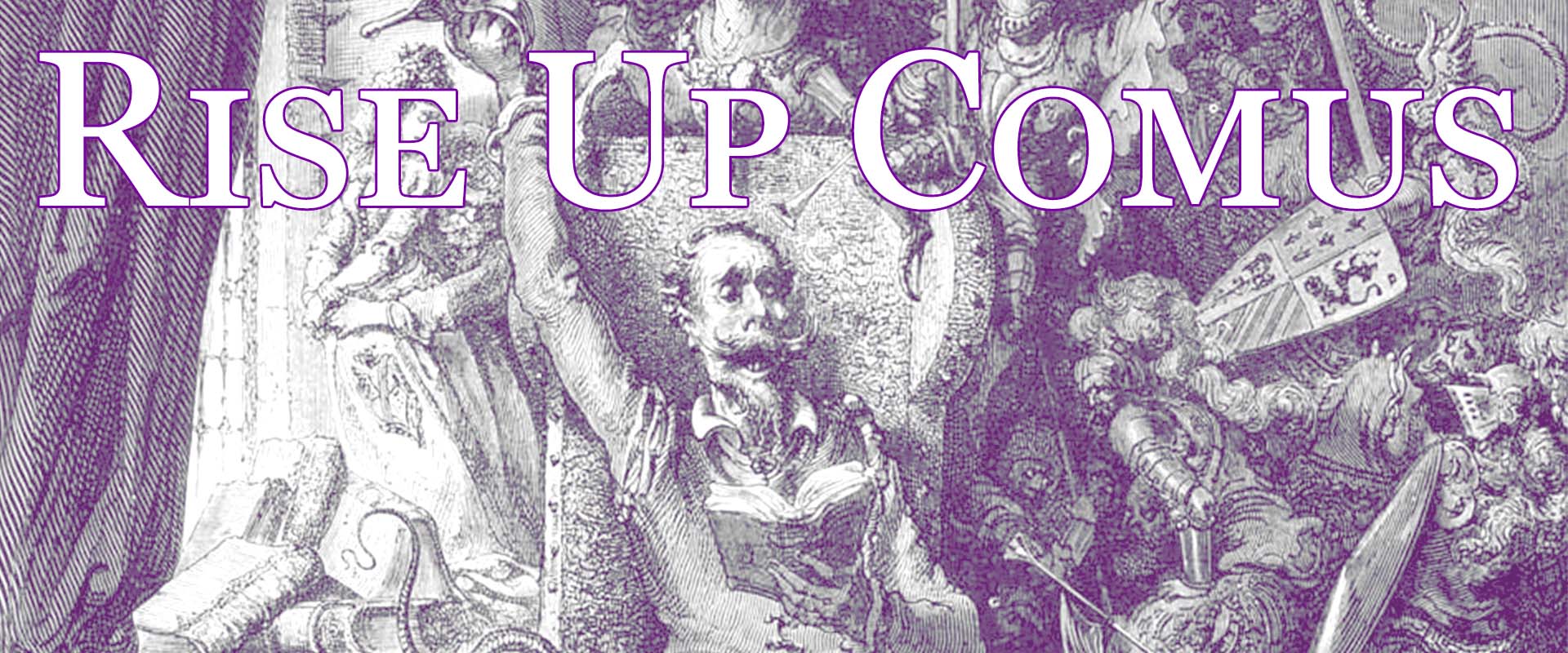The Ethos of Sorcery in His Majesty the Worm
The magic system in His Majesty the Worm is probably the subsystem that underwent the most dramatic changes during playtesting. Four completely different systems were written, playtested, and rejected. There were a lot of babies tossed out with the bathwater (which I'm pretty okay with.)
As I'm about to release the (final) rules for sorcery in His Majesty the Worm, I wanted to reflect a bit about the design choices I made when it came to magic.
Earliest drafts
I dug out these notes from my initial design documents. Note that this is basically how I start RPG projects--I just write down things I'm thinking about, then sort of iterate on that until it becomes words that someone else can (hopefully) understand.

Some of these notes made it into the final version and some of them were left on the cutting room floor. Finding this document, I was impressed how many idea seeds survived.
Magic should feel magical
One of my most central design goal for magic is that it should "feel" magical. It should feel unscientific.
Sorcerers use components to cast spells. These components are your eye of gnat, tongue of dog, toe of bat variety. Pulling out a pickled, rune-covered tongue and placing it into the mouth of a corpse to cast Speak with Dead inherently makes the sorcerer seem more magical and weird. Additionally, this system makes magic fit into the basic inventory management system that the game uses. How many spells do you have available equals how many pack slots you've dedicated to components.
Additionally, the spell descriptions are somewhat terse. They do not have the precise legalism that 5E or M:tG cards have. The GM has a good amount of leeway to interpret the spells as they're cast, creating a sense of manageable mystery.
Magic should be a strange Swiss-army knife
As a design goal, I don't want magic to step onto the aesthetic toes of other classes. If a wizard can cast Knock and Invisibility, they become better thieves than the thief. And that's disappointing.
In a similar vein, I never wanted to force players to have a "balanced" party. In His Majesty the Worm, you should be able to run a party of all thieves. You should also be able to run a party of all sorcerers. You should be able to have a party without magic, too.
With magic, a party should be able to solve problems in a dramatically different way than without it. A thief can unlock a door and eavesdrop at the threshold. A wizard can cast Portable Hole onto the door and peer through it. One is subtle and one is obvious. Both have their drawbacks and advantages.
Magic should never solve essential dungeon problems
His Majesty the Worm's is about dungeon crawling. There should be no powers, abilities, talents, class features, or spells that solve the essential problems of the dungeon: light, hunger, exhaustion. There are no spells that provide darkvision, conjure food and water, or provide continual light.
The one exception is the spell "Heavenfire" which does cast light and is harmful to undead. My rationale is that the component takes up as much space as a torch, but a sorcerer must power it through their Resolve. There's a trade off there, and a sorcerer casting an undead repelling light is fulfilling the "weird Swiss army knife" objective.
If all goes as planned, the sorcery rules for His Majesty the Worm will be published this weekend. They should be usable for your home game, and work as a proof of concept for the system as a whole.
Get His Majesty the Worm
His Majesty the Worm
A Tarot-Based Dungeon Crawling TTRPG
| Status | Released |
| Category | Physical game |
| Publisher | |
| Author | riseupcomus |
| Genre | Role Playing |
| Tags | OSR, Tarot, Tabletop role-playing game |
More posts
- New Worm supplement: Shrines of the Lower Ossuary11 days ago
- ENNIE nomination thank you!14 days ago
- Designing Dungeons Tutorial (FREE!)25 days ago
- A Collection of Worm SupplementsNov 18, 2024
- Worm Jam - September 1-30Aug 30, 2024
- Creator's KitAug 26, 2024
- Community-run DiscordAug 23, 2024
- Deep Dive - Adventurer's SheetNov 17, 2023
- Deep Dive - CharactersNov 08, 2023
- Deep Dive - TarotOct 14, 2023

Leave a comment
Log in with itch.io to leave a comment.